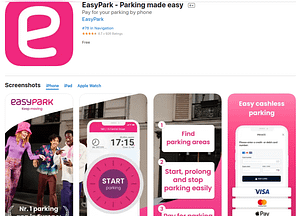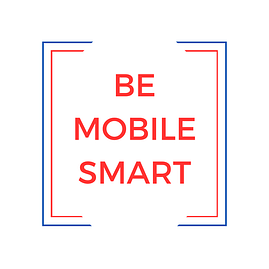
Dear Ms. Smartphone: My family and I were visiting an East Coast city this weekend for a college graduation. We parked our rental vehicle on the street and ended up getting a parking ticket. Apparently we missed the signage that requested we pay for parking by downloading an app, signing up, and entering the license plate number. I didn’t have that app, and had I downloaded it I would have missed the graduation ceremonies. Meanwhile, my Mom, who was with us, thought this was entirely unfair, as she does not have a cell phone in her own car. What to do for the future?Do I need a parking app? Carolyn, Pacifica
Dear Carolyn: Parking apps seem to proliferate like weeds and no one wants to set up an account with each one. Let me begin by listing some popular parking apps. Parkopeia/ParkingPanda/bestparking/smartparking/Parkmobile/easypark/PaybyPhone/Yodel/Parker/ParkWhiz/ParkingPanda/SpotHero/BestParking/ParkNav/Passport Parking/OPnGO/ParkPay/ParkMe/ParkingKitty.
A five minute search on Google revealed these providers. Clearly there are more, some that will work on Android, others on iPhone, and many that require a particular version of a phone’s operating system. I imagine that city planners spend a lot of time being solicited by these app providers and taking precious time to select the the “right” parking app for their community. They view it as a progressive transportation option but more people like you are asking, “Do I Need a Parking App?”
Write it Up:
As a first level of response, you should send an email or letter to the municipality that issued the ticket. Send it to both the court and to the transportation department. Explain that you had no opportunity to download the parking app. You could add that you keep your phone on WiFi, and could not reach their site. And, you might note that your elderly mother would have no way to connect if she was driving on her own.
From the consumer’s point-of-view these apps require a strong WiFi signal and they are collecting a lot more than a quarter ($0.25) or two. To register, each app is going to ask for credit card information, address, and license plate. These are private companies and municipal officials often overlook that the companies, not the town, has access to this data. This is, of course, for the privilege, or should I say the right, to park your vehicle.
Pre-Registration Apps:
There is some parallel here with using Uber or Lyft for ridehailing. These services are also designed on having real-time telecom access. Significantly, riders must set up an account and put their credit card, email, and phone number on file before they take their first trip. There is nothing spontaneous about first trips on Uber or Lyft. In the Bay Area, the bridges also use a pre-registration process.
Many parking apps seem to be designed with a similar sign-in. The problem is that you just want to park your car- not create an account. Historically, drivers expect to be able to toss a few quarters into the meter and leave. It’s not a high-involvement issue, except to the app makers and city planners.
Happy Appy? Sometimes:
When you write to the transportation department, recognize that they may views pros and cons. Perhaps they expect to improve the experience for visitors like you. They can deploy electronic metering to vary the price of parking by time of the day. They might also save money with the electronic app as they reduce staff who walk from meter to meter and bring the coins back for central processing.
There are also some advantages for the driver if they are forbearing. Concord NH, for example, reminds app users that they will never face a parking ticket again because the app reminds them when the time is expiring. And drivers can refresh the payment online and not need to walk back to the vehicle. That all sounds good, but this is the point where a parking app become ‘high involvement.’ Notifications need to be enabled on the smartphone to get these messages. That could be distracting and annoying- all for the sake of a few quarters or dimes.
Reduce Search Time:
Perhaps the greatest advantage of these apps is that the most advanced parking apps guide a driver towards open spaces- particularly in private or municipal lots. The Parknav app, for example, will predict street space availability in real time when you search for an address. This is valuable since a major source of urban traffic congestion is cars that circle to find a parking space. In an unscientific way, this Forbes article claims that about 30% of drivers at a given time are doing this and a third of NYC drivers report they search for 20 minutes on average.
If you plan to go back to this municipality for a future graduation then by all means download their app for parking. But if this was a one time visit, with a one time ticket, take the time to write the town or city. Let them know that for a drop-in or casual visitor, the parking app was an unfriendly deterrent. They should offer you, and your Mom, an option to pay with coins or a credit card, not just with your phone. It’s Pomp, Parking, and Circumstance.


Leave a Reply
You must be logged in to post a comment.